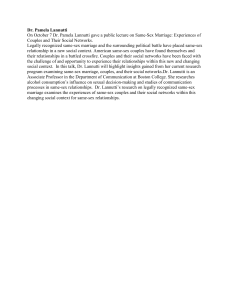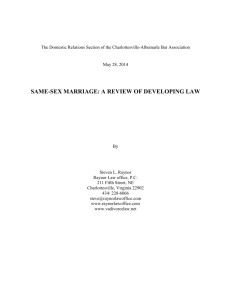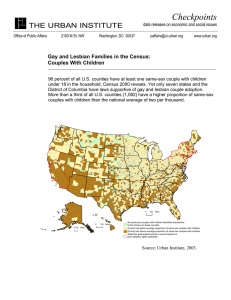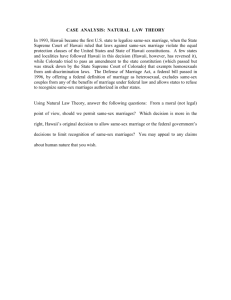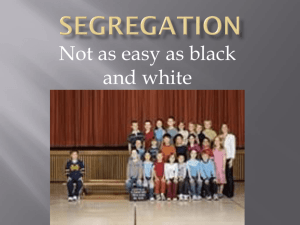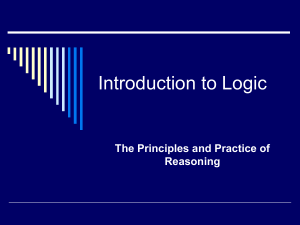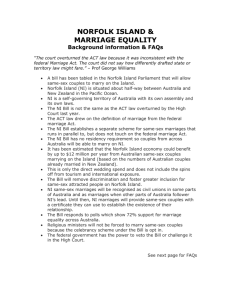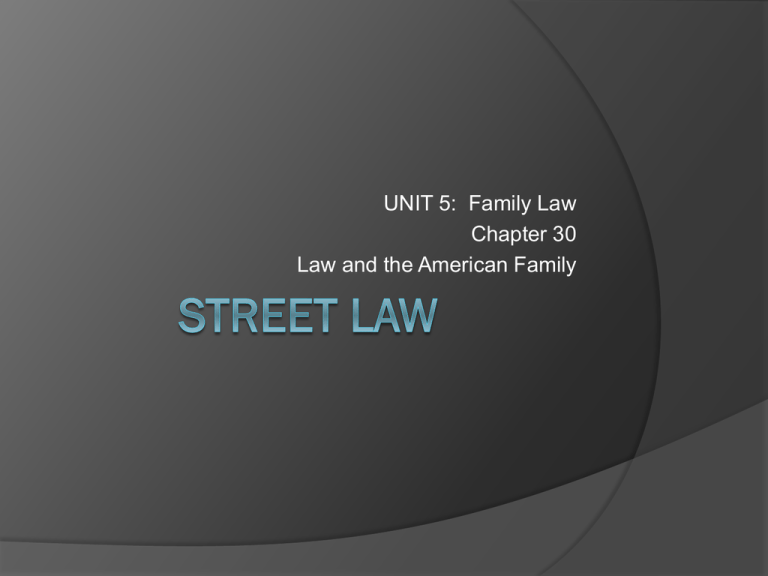
UNIT 5: Family Law
Chapter 30
Law and the American Family
The law affects individuals & families
throughout their lives—through events such as
births, deaths, marriages, divorces, & more
For example:
○ when a child is born, a birth certificate is issued by
the state
○ all babies are required by law to receive
immunizations against certain diseases
○ in addition, children between certain ages are
required to attend school
Families in the U.S. take a variety of forms as
individuals make decisions about love, marriage, &
with whom they will live
Some families don’t follow the traditional structure of a
legally married woman & man & their children
• For example, families can consist
of a single parent with children, or
a same-sex couple with children
Laws are changing rapidly to help solve
conflicts & challenges faced by both
traditional & nontraditional families in
society today
What is Family Law?
Benefits that families provide to their members &
society
A socially accepted & orderly setting for sexual conduct
Stable & economically secure circumstances in which
to raise children
Socialization & moral & physical development for
children
Companionship & psychological support
Economic security & the potential to divide income,
homemaking, & child-rearing responsibilities &
Long-range assurance that other members of the family
will help each other in times of sickness, accident, old
age, poverty, or other hardship
Background—
Defense of Marriage Act &
Same-Sex Couples
One area of family law
that is undergoing
enormous debate &
change in the area of
domestic partnership, civil
unions, & marriages for
same-sex couples
In recent years, several
courts have issued
decisions & legislatures
have enacted laws
related to these issues
Law from Birth to Death
From birth until death, the law creates rules &
boundaries that affect the way children,
teenagers, adults, & families are able to live their
lives
Many daily activities and events are so common
that it is easy to forget that there are actually laws
regulating almost every action
For example:
○ parents must provide the basic necessities for their
children;
○ children of a certain age are required to go to school;
○ & teenagers can take a driver's test & vote in public
elections when they reach a certain age.
A will states how a person
wants his or her property
distributed after death
If a person dies without making a
will, then state law determines who
receives that person’s property
Having a will ensures that a
person’s estate, or property, goes
to whomever he or she wishes in
the amounts he or she chooses
The laws that govern many important aspects of a person's life
can vary from state to state
What Is a Family?
Defining what constitutes a family can
be difficult
The size & appearance of the American family is
constantly changing due to various economic, social,
& political factors
For example, many children are raised in families that do not
have two parents
Since there is no longer a traditional family model,
the law & the courts have adapted to meet the
changing needs of today's society & family


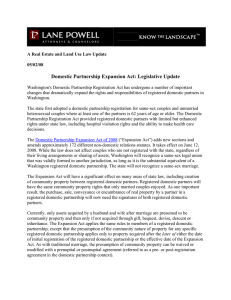
![-----Original Message----- From: Elizabeth H. Maury, Ph.D. [ ]](http://s2.studylib.net/store/data/015587840_1-99e1c0d77ec14fce523cbff8ea4fb89d-300x300.png)
